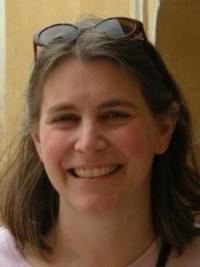2013 Recipients
Dr. Cynthia Clopper and Dr. Laura Wagner
The Ohio Regional Dialect Development Project


The Ohio Regional Dialect Developmental Repository (ORDDR) will contain cross-sectional developmental data on the perception and production of regional dialect variation. The repository will include data from participants ranging from pre-school aged children (between 4 and 5 years old) through older adults (over age 70 years) to allow for an exploration of the developmental trajectory of cognitive representations of sociolinguistic variation. Each participant will be tested on each of a series of short perception tasks: classification, discrimination, labeling, and localness judgments to assess dialect categories; social attitude judgments to assess stereotypes; and transcription to assess intelligibility. In addition, participants will complete a set of short production tasks: color naming and short story telling to assess their native production of critical phonemes. Participants will also provide relevant demographic information. These specific measures were chosen to represent a range of skills critical for dialect use and understanding, and the tasks will be adapted from established work in the field, including our own (e.g. Clopper, Rohrbeck, & Wagner, 2012; Wagner, Pate, & Clopper, 2014).
The repository will fill critical empirical gaps in the literature by tracking dialect skills across the lifespan. Moreover, by using a standard set of measures, the repository will allow for reliable cross-age comparisons and standardized developmental milestones. Our preliminary results provide the first evidence that children as young at 4-5 years old can make judgments about regional dialects based on speech and show clear evidence of adult-like dialect perception by as early as 12 years old in some tasks.
Impact of the Ohio Regional Dialect Development Repository
We plan to make the web-based repository accessible from the CCBS website and to brand the repository as a CCBS product. Researchers who access the repository will necessarily encounter the CCBS and we therefore expect the repository to raise the profile and visibility of the Center both within the University and in the broader international Cognitive Science community. Once we have developed the dialect assessment tool, we will make it available online and accessible from the CCBS website, to further promote the Center’s strengths in and contributions to interdisciplinary research in language development.

The project will also help establish a collaborative relationship between CCBS and the Language Pod. The research in the Pod examines the cognitive representation and processing of language, and therefore falls squarely within the domain of Cognitive Science. Clopper and Wagner are both members of the steering committee for the Pod and are excited about the possibility of forging a better integration between the language and cognitive science communities at Ohio State. We expect that this project will raise the visibility of the Center among language researchers on campus and that it has the potential to foster collaborative grant proposals between the CCBS and the Pod.
A post-doc will oversee the day-to-day activities associated with the project. The postdoc will be affiliated with the CCBS and encouraged to interact with other post-docs on campus who are involved in cognitive and neuroscience research. Thus, the post-doc will contribute to the community of post-doctoral Cognitive Science researchers at OSU.
The repository will most directly impact the Language Pod and the departments of Linguistics and Psychology at OSU. The large-scale data collection necessary to produce the repository will ensure a consistent, active research presence at the Pod lab. Financial support from CCBS for the repository will also allow us to hire the staff that we need to collect data efficiently from large numbers of participants. The successful completion of the repository will facilitate future grant applications for funding our work at the Pod lab. The departments of Linguistics and Psychology will also benefit from our individual contributions to this project, in the form of tangible products such as journal publications and the repository itself. These products will help raise the profiles of research in language development and sociolinguistics at OSU.
The extension of the repository to populations with developmental disabilities and/or language disorders will facilitate connections among CCBS, the Pod, the department of Speech and Hearing Science, and the Nisonger Center. Speech and Hearing Science is currently not well-represented in the research being conducted at the Pod, and this resource has the potential to highlight the research opportunities that the Pod provides and inspire Speech and Hearing Science faculty, among others, to conduct research there. The repository and dialect assessment tool may also directly contribute to ongoing research at the Nisonger Center and in Speech and Hearing Science by providing a benchmark assessment of dialect skills against which the skills of individuals and/or populations can be compared.
The primary external beneficiary of this resource will be COSI. Active research-as-exhibit is extremely desirable for science museums. A high-profile research outcome, such as this repository, would substantially contribute to COSI’s excellent standing in the museum world.
The impact on other external institutions is more difficult to predict, but any research conducted by external investigators using materials from the repository and/or the dialect assessment would reflect positively on the institutions that the investigators are affiliated with.
The repository is a unique resource that complements both existing corpora and existing language assessments. The corpus will contain speech from participants with a larger age range than any existing speech corpus and will therefore not compete directly with existing corpora of child language or language variation. The dialect assessment tool will similarly provide an evaluation of a unique set of skills that are not covered by any existing language assessment test. Thus, the repository and associated assessment tool will not replace any existing products and will therefore not negatively impact OSU or any external institutions.
For more information, please check the ORDDR project page: https://u.osu.edu/orddr/.
